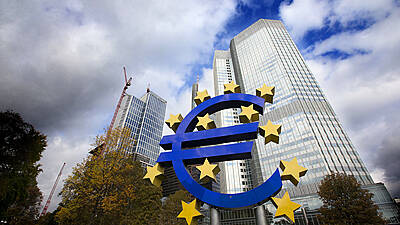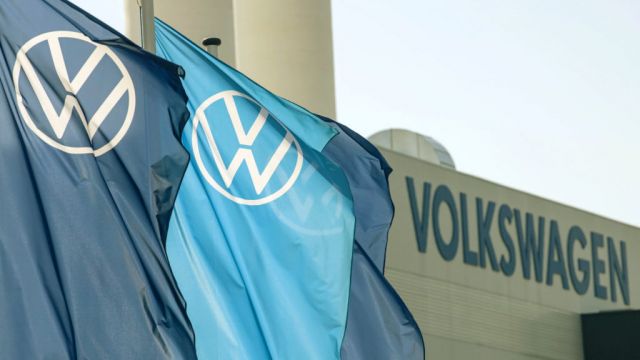Volkswagen plans to invest €180 billion euros over five years in areas including battery production and raw material sourcing in a bid to cut electric vehicle costs and protect its market share, it said on Tuesday.
Over two-thirds of the company's five-year investment budget announced on Tuesday is allocated to electrification and digitalisation, including up to €15 billion for batteries and raw materials.
With markets in turmoil over the collapse of Silicon Valley Bank, Chief Financial Officer Arno Antlitz told analysts however that the company could postpone some battery investments if the market did not grow as expected.
"The overall target is having at all times solid financials," Mr Antlitz said.
Volkswagen, Europe's top carmaker, is striving to close a gap with electric vehicle (EV) pioneer Tesla by expanding its slice of the growing market for battery-powered cars.
The carmaker is still aiming to bring an affordable EV — costing around €25,000 euros at today's prices — to market by 2025, produced on a second-generation version of its all-electric MEB platform.
Mr Antlitz said he hoped the company would by then have struck enough raw material sourcing deals and expanded battery production to bring down EV costs, 40 per cent of which stem from the cost of the battery.
"We expect to reach 20 per cent electromobility in new sales from 2025 and are already investing two-thirds in that area," Antlitz said. "On the other hand we need to keep combustion engines competitive... that is a double burden."

The carmaker said it is finalising high-performance software for its premium and luxury brands which could in the medium term be applied across the company, in an attempt to improve operations at its software unit Cariad.
The unit set up under former CEO Herbert Diess has gone over budget and fallen behind on its goals, suffering an operating loss of 2.1 billion euros in 2022 on revenue of 800 million euros, according to the carmaker's annual report released on Tuesday.
Shares in Volkswagen were 2.6 per cent lower on Tuesday morning, with analysts at Jefferies describing the detailed final fourth-quarter results as "weak".
Volkswagen met analysts' expectations in 2022 on revenues but missed the consensus estimate for earnings before interest and taxes by 3 per cent. — Reuters







